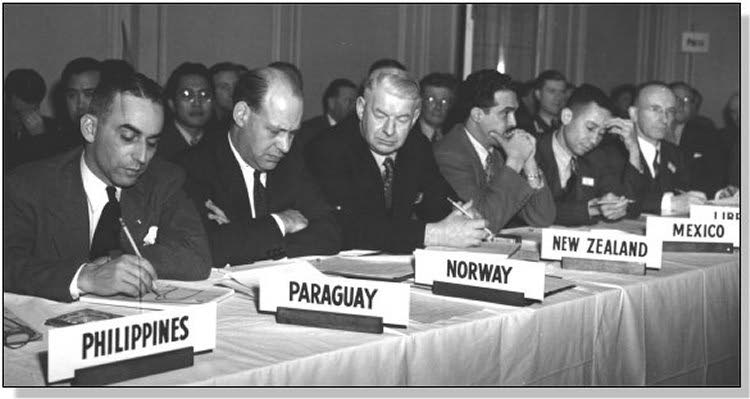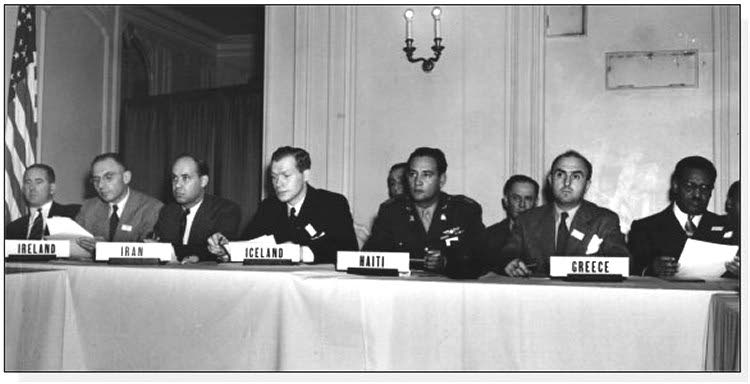Global aviation organisation celebrates 80 years

The signing of the Convention on International Civil Aviation in Chicago, US, marked its 80th anniversary on December 7.
For eight decades, this defining international agreement has served as the foundation for the development of the global civil aviation system to the benefit of all nations.
In celebrating this important milestone, the International Civil Aviation Organisation (ICAO) organised a unique event that took place on December 4-5 at the Chicago Hilton Hotel, formerly the Stevens Hotel, where the convention was adopted and gave birth to the ICAO.
The Second World War was a powerful catalyst for the technical development of the aeroplane.
A vast network of passenger and freight carriage was set up during this period, but there were many obstacles, both political and technical, to evolve these facilities and routes to their new civilian purposes. After several studies and consultations with its major allies, the US government invited 55 states to attend an international civil aviation conference in Chicago in late November 1944.
The delegates met at a very dark time in human history and travelled to Chicago at great personal risk. Many of the countries they represented were still under World War II occupation.

In the end, 54 of the 55 states invited attended the Chicago conference, and by its conclusion on December 7, 1944, 52 had signed the agreed Convention on International Civil Aviation.
The convention received the requisite 26th ratification on March 5, 1947, and went into effect on April 4, 1947, the date ICAO came into being.
In October of the same year, ICAO became a specialised agency of the UN Economic and Social Council. The ICAO headquarters, a gift from the Canadian government, is in Montreal, Quebec, Canada.
Today, ICAO membership consists of 193 member states.
TT became a signatory to the Chicago Convention on March 14, 1963. On the same date, it signed the International Air Service Transit Agreement, which allows airlines of states parties to the agreement to overfly TT sovereign airspace or land in TT for non-commercial purposes.
The celebration offered the opportunity to reflect on important achievements over the last 80 years. More importantly, it served as an opportunity to reflect collectively with all stakeholders on how aviation development will continue to be supported by ICAO over the coming decades.
More commonly known then and today as the "Chicago Convention," this landmark agreement laid the foundation for the standards and procedures for peaceful global air navigation.
It set out as its prime objective the development of international civil aviation "in a safe and orderly manner," and such that air transport services would be established "on the basis of equality of opportunity and operated soundly and economically."
Under the theme Safe Skies, Sustainable Future: Together for the next 80 years, ICAO convened an extraordinary session of its governing body, the council, on December 5.

The session was followed by a series of interactive and engaging high-level roundtable discussions with representatives of states, industry, regional organisations, academia, UN and non-governmental organisations on the evolution of the sector, the global challenges and opportunities it faces. The session also addressed the fundamental role of ICAO as a bridge builder for the further safe, secure, social, economic and sustainable development of air transport.
The session adopted a resolution that paid tribute to the leadership, vision and co-operative spirit of the signatories to the Chicago Convention and to all those who contributed to the development of international civil aviation. The resolution reiterated the need for ICAO to continue to take a leadership role in the development and support of the principles, standards and agreements for the safe and orderly development of international civil aviation.
The resolution welcomed efforts to strengthen the ICAO’s ability to respond effectively and equitably to the challenges facing international civil aviation, while pursuing ambitious, long-term goals, as stated in the ICAO Strategic Plan 2026-2050, aimed at supporting a safer, more secure, accessible, economically sound and viable, efficient, affordable and environmentally sustainable international civil aviation system, on the basis of equal opportunity and amidst ever-increasing global demand.
ICAO pledged to continue to work together with member states and the global civil aviation community to build partnerships and promote best practices that foster a more resilient, inclusive and diverse aviation sector, while ensuring international civil aviation will continue to contribute to the achievement of the relevant UN Sustainable Development Goals.
ICAO encouraged all member states and stakeholders to accelerate progress towards an environmentally sustainable, low-emissions and energy-efficient civil aviation sector, including the long-term aspirational goal to reach net-zero carbon emissions by 2050, as well as through the Global Framework for Sustainable Aviation Fuels, Lower Carbon Aviation Fuels and other aviation cleaner energy systems.
Participants were urged to co-ordinate and co-operate amongst themselves and through ICAO to support the implementation of assistance activities to states in need.
ICAO acknowledged that it recognised the important role of women in the aviation sector and committed to promoting their engagement at all levels as part of an inclusive and equitable approach that fosters diversity in the decision-making and management of the sector.
It also recognised the role innovation will play in the future of aviation and committed to employing and developing all available measures, as well as promoting the participation of new entrants in the sector to maximise its potential in strengthening aviation safety, efficiency, security, facilitation, affordability and economic and environmental sustainability for the benefit of future generations.
Member states were called upon to continue promoting and adhering to the convention's objectives and principles while complying fully with its provisions.

Comments
"Global aviation organisation celebrates 80 years"